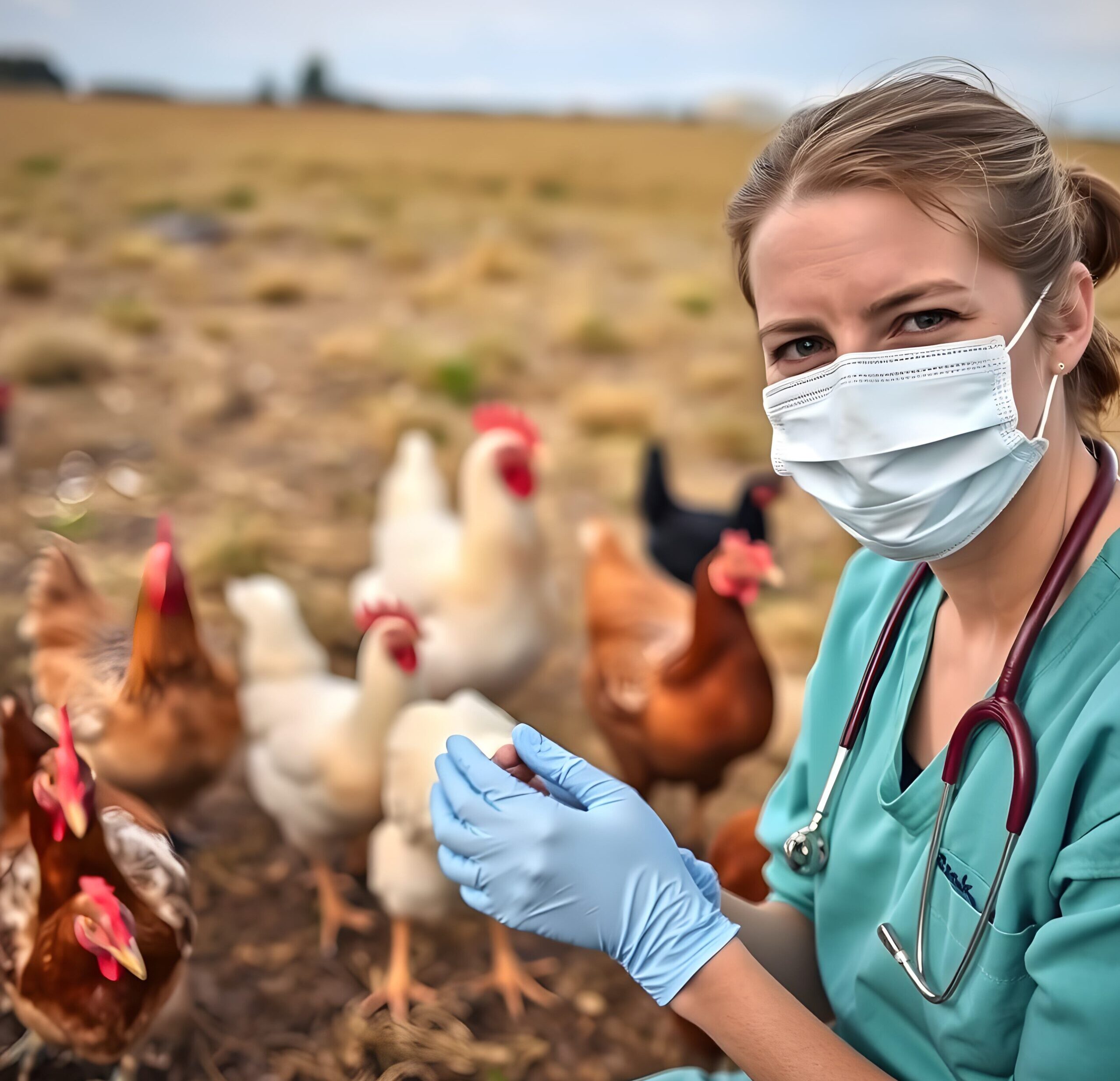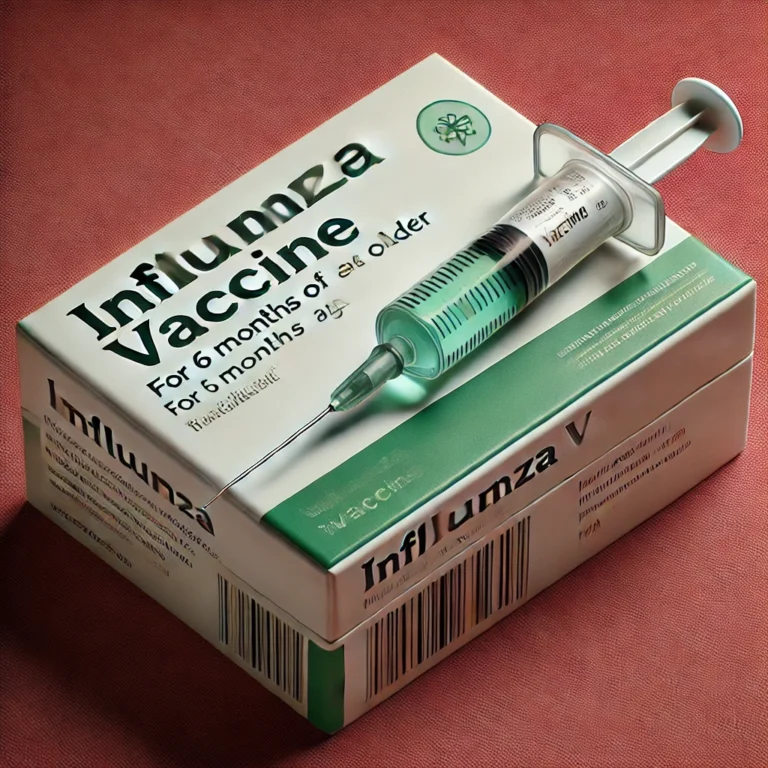In November 2024, an outbreak of the H5N1 bird flu strain was confirmed on a farm in Cornwall, UK. This highly contagious virus, which primarily affects birds, has been causing significant concerns within the poultry farming industry, and its spread could have serious economic consequences. Though the risk to human health remains low, the British government has put extensive measures in place to control the outbreak and prevent further transmission to both poultry and humans.
This article will explore the specifics of the H5N1 outbreak in Cornwall, its impact on local farms, the response from health authorities, and the measures being taken to prevent its spread. Additionally, we will examine the global implications of the virus and the ongoing efforts to track and contain it.
Understanding Bird Flu: What is H5N1?
H5N1 is a strain of the avian influenza virus, commonly known as bird flu. It primarily infects birds, but in rare cases, it has been known to affect humans and other animals. First identified in Hong Kong in 1997, H5N1 is particularly dangerous because it can spread rapidly among bird populations and is highly lethal to poultry. The virus is typically transmitted through contact with infected saliva, nasal secretions, or feces of infected birds, though it can also spread indirectly through contaminated feed, water, and equipment.
Though human-to-human transmission of H5N1 is rare, it has occurred in specific outbreaks, primarily among people who had close contact with infected poultry. In the past, the virus has raised concerns about the potential for a pandemic, but so far, it has not spread efficiently among humans. Nonetheless, health authorities continue to monitor the virus closely, particularly in areas with large poultry populations, such as Cornwall.
Details of the Current Outbreak in Cornwall
In early November 2024, a Cornish farm was found to be the site of a significant H5N1 outbreak. The exact timeline of the outbreak is still under investigation, but it was first reported when several birds at the farm began displaying symptoms consistent with avian influenza. Testing confirmed the presence of the H5N1 virus, and the affected farm was quickly placed under quarantine.
The immediate response from the UK government involved the culling of infected birds to contain the virus and prevent it from spreading to other farms. Biosecurity measures, including the restriction of movement in and out of the affected farm, were also implemented. Furthermore, nearby farms within a specific radius were closely monitored for any signs of infection, with some farms reporting additional cases of avian influenza.

Government and Health Response
The Department for Environment, Food & Rural Affairs (DEFRA) has taken swift action in response to the outbreak. DEFRA, along with the Animal and Plant Health Agency (APHA), has issued guidelines for farmers on how to prevent the spread of the virus, emphasizing the importance of strict biosecurity practices, such as isolating sick birds, cleaning equipment, and disinfecting footwear.
The government has also enacted restrictions on the movement of poultry in affected areas, limiting the transportation of live birds, eggs, and poultry products. Surveillance teams have been dispatched to monitor the situation and ensure compliance with these measures. In addition, the UK Health Security Agency (UKHSA) has been working to assess the potential risk to human health, although they have stated that the risk remains low.
Public health advice encourages individuals who come into contact with infected poultry to take precautions, such as wearing protective clothing and gloves, and washing hands thoroughly after handling birds or their products.
Impact on Local Farms and Economy
The economic impact of the H5N1 outbreak on local farms in Cornwall has been significant. Poultry farmers face the immediate loss of their flocks due to culling, and the broader agricultural community is concerned about the long-term consequences of reduced poultry production. The UK’s poultry industry is a multi-billion-pound sector, and any disruption to supply chains can result in higher prices for consumers and financial hardship for farmers.
In addition to the direct financial losses, farms in affected areas are also facing restrictions that limit their ability to sell or transport poultry products. This could lead to a backlog of unsold stock, further compounding the financial strain. Compensation programs are in place for farmers whose poultry have been culled, but the process can be lengthy, and the amount provided may not fully cover the losses.
The impact is not limited to the farming sector alone; the local economy in Cornwall also suffers. Poultry farms provide jobs to local workers, and an outbreak can lead to temporary unemployment, affecting the livelihoods of farm staff, truck drivers, and others in the agricultural supply chain.
Preventive Measures for Poultry Farmers
To combat the H5N1 outbreak, DEFRA has issued a set of biosecurity guidelines for poultry farmers. These measures are critical in limiting the spread of the virus and protecting the broader poultry population. Farmers are advised to:
- Isolate infected birds: Any birds showing symptoms of illness should be immediately separated from the rest of the flock to prevent further transmission.
- Clean and disinfect equipment: Regular cleaning and disinfection of equipment, vehicles, and buildings are essential to prevent cross-contamination.
- Limit contact with wild birds: Wild birds can carry the virus and spread it to domestic poultry. Farmers are encouraged to keep their birds in enclosed spaces, preventing interaction with wild populations.
- Monitor bird health: Farmers should regularly check the health of their birds and report any signs of illness to the relevant authorities.
Additionally, vaccination options are being explored, though H5N1 vaccines are not widely available in the UK. Farmers are encouraged to stay informed about any updates regarding vaccination programs and to participate in research initiatives aimed at developing effective vaccines for avian influenza.

The Risk to Public Health
While the primary concern in the H5N1 outbreak is its impact on bird populations, there is also ongoing monitoring of potential risks to human health. H5N1 infections in humans are rare but have occurred in the past, primarily among individuals with direct contact with infected poultry.
To date, there have been no confirmed cases of human transmission in the UK, and health authorities have stated that the overall risk to public health remains low. The World Health Organization (WHO) and the UK government continue to monitor the situation, and ongoing surveillance efforts are in place to track any changes in the virus’s behavior.
For those working in close proximity to poultry, such as farm workers, additional precautions are being recommended. These include the use of protective clothing, masks, and gloves when handling birds or poultry products. Farm workers should also avoid touching their face, especially their eyes, nose, and mouth, after handling potentially infected birds.
Global Context: H5N1 Outbreaks in 2024
The outbreak in Cornwall is part of a larger pattern of H5N1 outbreaks that have been reported globally in 2024. In addition to the UK, several other European countries, as well as parts of Asia, have experienced outbreaks of avian influenza in poultry populations. These outbreaks have raised concerns about the potential for the virus to mutate or reassort with other influenza viruses, which could increase the risk of human transmission.
In response, international health organizations, including the WHO and the Food and Agriculture Organization (FAO), are coordinating efforts to track the spread of the virus, identify new cases, and develop strategies for controlling outbreaks. Countries with large poultry industries are investing in improved surveillance and biosecurity measures to protect both their poultry populations and public health.

Future Outlook: What’s Next for the H5N1 Outbreak?
The situation in Cornwall is being closely monitored, and health and agricultural authorities are working to prevent the further spread of the virus. Continued surveillance, effective biosecurity practices, and rapid responses to outbreaks will be crucial in limiting the impact of H5N1 in the UK and globally.
Farmers are advised to stay up to date on the latest guidance from DEFRA and other health authorities. Biosecurity will remain the primary tool in preventing the virus from spreading to other farms, while public health organizations will continue to assess the risk to human health and provide recommendations as necessary.
The H5N1 bird flu outbreak in Cornwall serves as a stark reminder of the ongoing challenges posed by avian influenza. While the risk to human health remains low, the outbreak has had a significant impact on local poultry farms, the broader agricultural community, and the economy.
Through strict biosecurity measures, swift government action, and global cooperation, it is hoped that the spread of H5N1 can be controlled. For farmers, adherence to safety protocols and staying informed about developments will be crucial in safeguarding both their livestock and their livelihoods.
As the situation evolves, authorities and farmers alike must remain vigilant to ensure that the outbreak does not escalate further. By continuing to monitor the virus, implement preventive measures, and prepare for potential future outbreaks, we can minimize the risks and protect both public health and the poultry industry.
Visit our other website:master3dp.com












